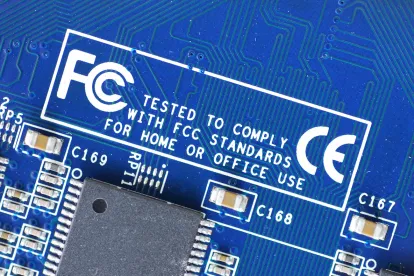6 GHz Band Pleading Cycle
The FCC issued an Order last week denying the Ultra Wide Band Alliance’s (UWB Alliance) request to extend the pleading cycle for the 6 GHz band proceeding (Vol. XVII, Issue 22). UWB Alliance claimed that the current 30-day comment period was not enough time to sufficiently comment on the matter, and that an extension would result in a more developed record. It also cited the COVID-19 pandemic as having an adverse effect on normal business operations. In denying the request, the Office of Engineering and Technology stated that a 30-day comment period was sufficient to develop the record and that most states have begun resuming normal business activities. It also noted that parties may make ex parte presentations to introduce supplemental materials after the comment cycle has closed.
Wireless Providers Endorse Alternative Z-Axis Framework
Last week, CTIA filed an ex parte letter outlining telephone conversations it and several of its members had with FCC staff regarding alternative proposals to the z-axis 9-1-1 location accuracy requirements the Commission adopted in November (Vol. XVI, Issue 47). CTIA, Verizon, AT&T, and T-Mobile urged the FCC to allow providers to meet the April 2021 benchmark nationwide as opposed to only in the top 25 markets. The providers also emphasized the ability of mobile OS-based solutions to deliver vertical location information that meet the plus or minus three meters metric.
Rural Connectivity Advancement Program Act of 2020
Sen. John Thune (R-SD) introduced the Rural Connectivity Advancement Program (RCAP) Act of 2020 last Thursday, which establishes a Rural Broadband Assessment and Deployment Fund in the Treasury. Under the RCAP Act, ten percent of the net proceeds from FCC auctions completed before September 30, 2022 will be deposited in the fund. The FCC may use the Fund to establish programs that are separate from, but compliment, its high-cost programs that assess and subsidize the deployment of broadband infrastructure in rural areas.
Broadband Connectivity and Digital Equity Framework
Sen. Roger Wicker (R-MS) and Rep. Greg Walden (R-OR) released principles for a legislative framework last week aimed at expanding broadband access across the country. The Broadband Connectivity and Digital Equity Framework would authorize funding to complete accurate broadband mapping efforts, streamline permitting processes for telecommunications infrastructure and equipment, and establish programs to keep individuals and families connected in light of the pandemic. The framework would serve as a foundation for legislative efforts related to modernizing communications infrastructure and expanding access to broadband services.
3Q USF Contribution Factor Proposed
The FCC released a Public Notice on June 12 proposing a universal service contribution factor of 26.5 percent for the third quarter of 2020. This is up from the second quarter of 2020, which was 19.6 percent. If the Commission takes no action regarding the projections of demand and administrative expenses associated with the universal service programs within 14 days of the date of the Public Notice, then the proposed factor will be deemed approved.







 />i
/>i

